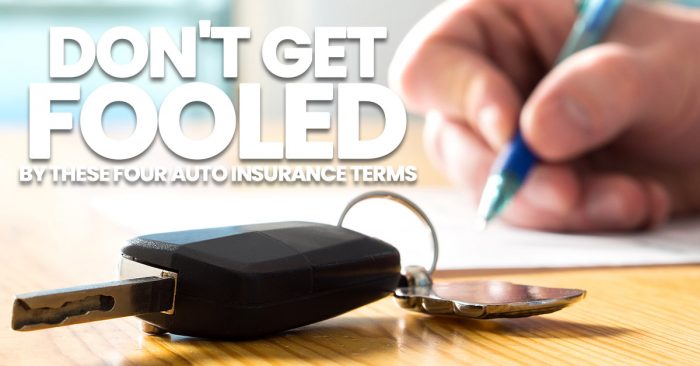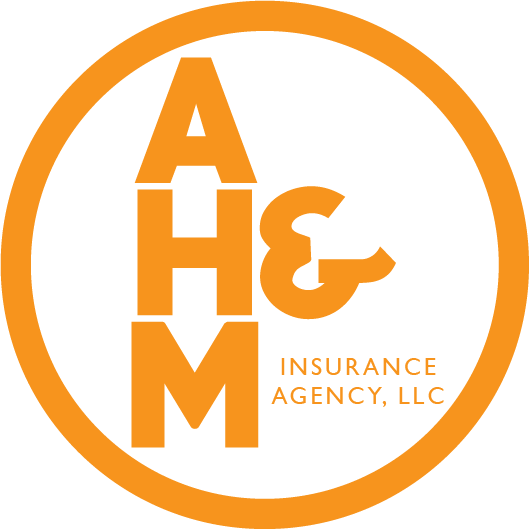Don’t Get Fooled By These Four Auto Insurance Terms
Don’t Get Fooled By These Four Auto Insurance Terms

Don’t Get Fooled By These Four Auto Insurance Terms
There is no doubt insurance, and automobile insurance terminology can be confusing. It is one of the reasons talking to a real person, like one of our independent insurance agents, can be so beneficial. When shopping on your own however, knowing the real meaning behind some terms can be helpful and even vital in keeping you from making expensive mistakes. Here are four insurance terms you should fully understand.
State Minimum Coverage
Every state has some form of financial responsibility law for drivers. This usually means carrying automobile insurance is mandatory. These laws requite “state minimums” for the state you drive in. It is what it is, the MINIMUM your state requires. It is not the suggested amount, the best amount or even the most cost-effective amount. It is the MINIMUM your state requires to operate a vehicle. For most people, this is simply inadequate. Let one of our agents explain affordable options for you that may vastly improve your coverage and benefits.
Uninsured/Underinsured Motorist Coverage
Some people reject uninsured motorist coverage because somehow they’ve come to believe they are paying to insure someone else. Not true. Uninsured/underinsured motorist insurance protects you when another driver has no or too little coverage to fully pay for your injuries. Even if they are taken to court, they may not have the resources to pay your damages. Uninsured motorist property damage coverage is also valuable when you are in a collision with someone that does not have insurance and you do not have collision coverage on your vehicle. Many attorneys recommend the acquisition of uninsured/underinsured motorist coverage.
No-Fault Insurance
No-fault insurance doesn’t mean someone isn’t to blame for the responsibility of an accident. It does mean each person involved should have minimum coverage to pay for their own injuries. In no-fault insurance states, these injuries are covered by PIP (Personal Injury Policy).
Full or Comprehensive Coverage
The terms “full” or “comprehensive” coverage may lead you to believe you are covered for anything at anytime. These are more general terms describing the type of coverage not the amount of coverage or features like car rentals. Make sure you understand all the provisions and limits of your policy.
You may also believe that buying DIY insurance online may be able to save you money. The best way to save is to compare. That is where our independent insurance agents can help. They have relationships with a network of insurance companies who can deliver exceptional coverage at a price you can be comfortable with. Give them a try. Contact one of our independent automobile insurance agents today.










